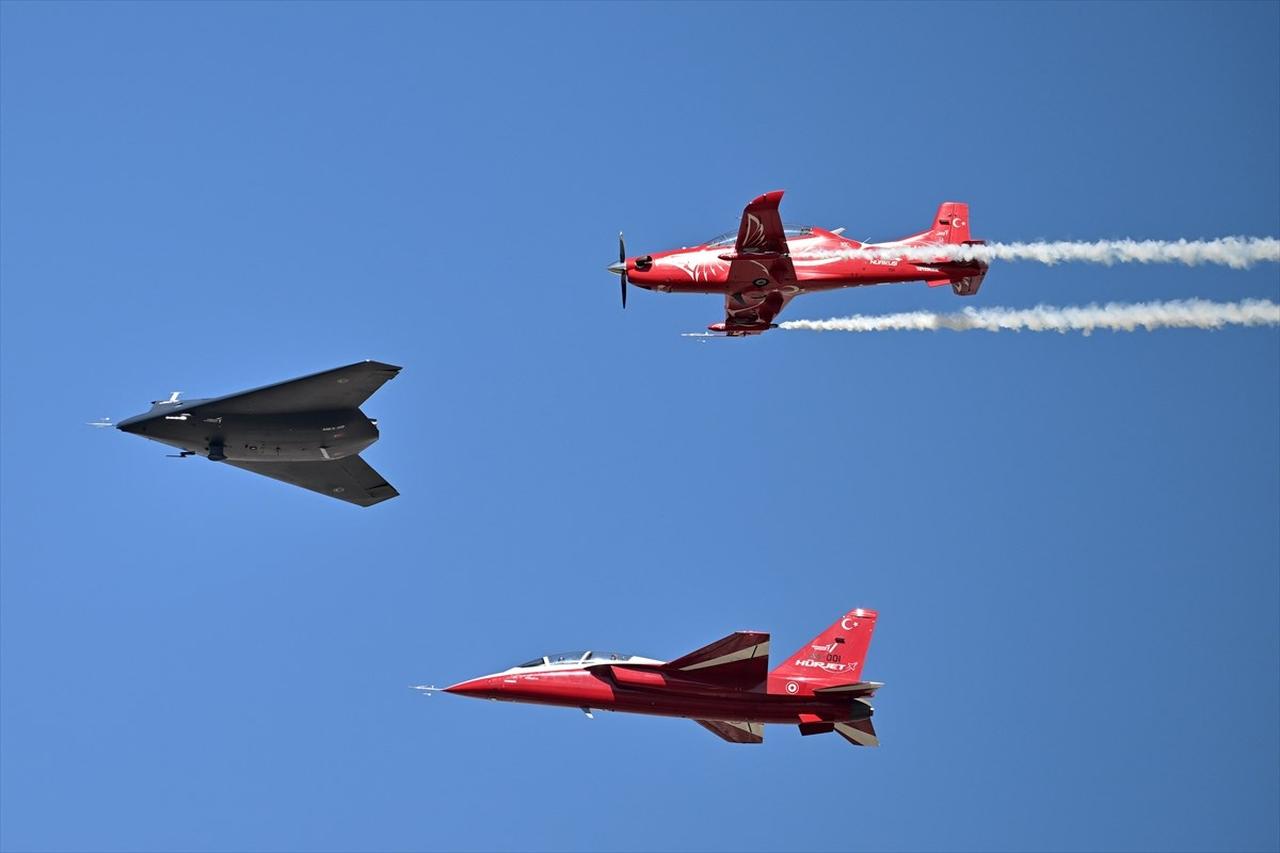
Turkish Aerospace Industries (TAI) General Manager Mehmet Demiroglu announced the company's ambitious 10-year production plan, targeting approximately 1,450 aircraft and platforms by 2034, including 500 KAAN fighter jets, Hurjet trainers, and Hurkus aircraft.
Speaking at a press briefing at TAI Kahramankazan facilities, Demiroglu outlined the company's comprehensive production roadmap and revealed that the first Hurjet delivery to the Turkish Air Force will occur in early 2027.
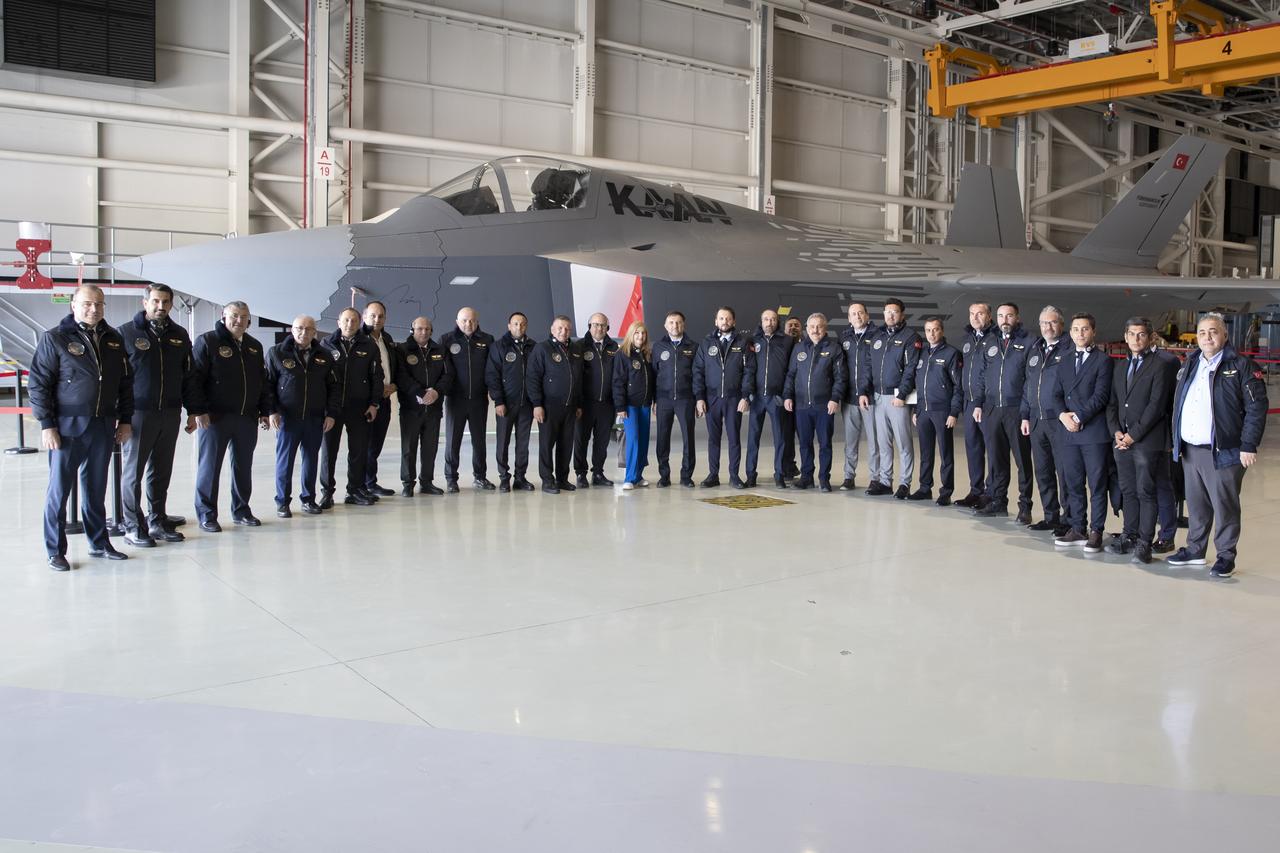
Demiroglu detailed the company's extensive production projections for the next decade.
"When we look at what we have ahead until 2034, there are approximately 500 KAAN, Hurjet, and Hurkus production. We see production of over 350 Gokbey, Atak, Atak-2 and similar platforms, we see nearly 600 Anka-3, Atak, Anka-1, Aksungur and similar platforms," he said.
The ambitious production plan represents a significant scale-up from current operations, positioning TAI as a major global aerospace manufacturer.
While announcing expansion into new markets, Demiroglu said, "We are growing in the African market. Our efforts to open offices in Algeria, Saudi Arabia, Nigeria, and Brazil have begun."
Demiroglu stated that their 2024 revenue approached $3 billion, and they target $4.3 billion in revenue this year.
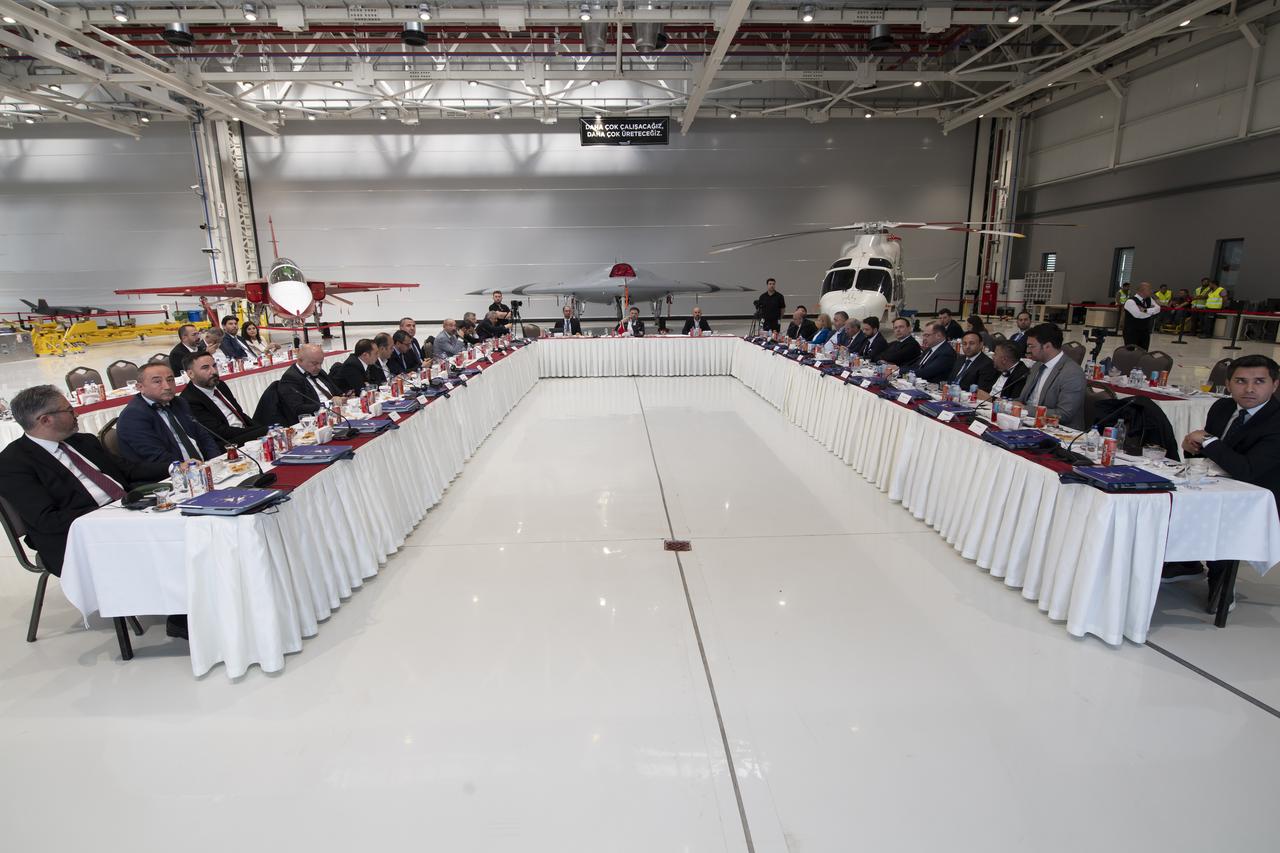
Providing information about HÜRKUŞ trainer aircraft orders totaling 55, Demiroglu said, "We will deliver 10 of the orders this year. We made 15 Hurkus. 5 of them are currently in use, we plan to deliver seven of them to requesting countries within this year."
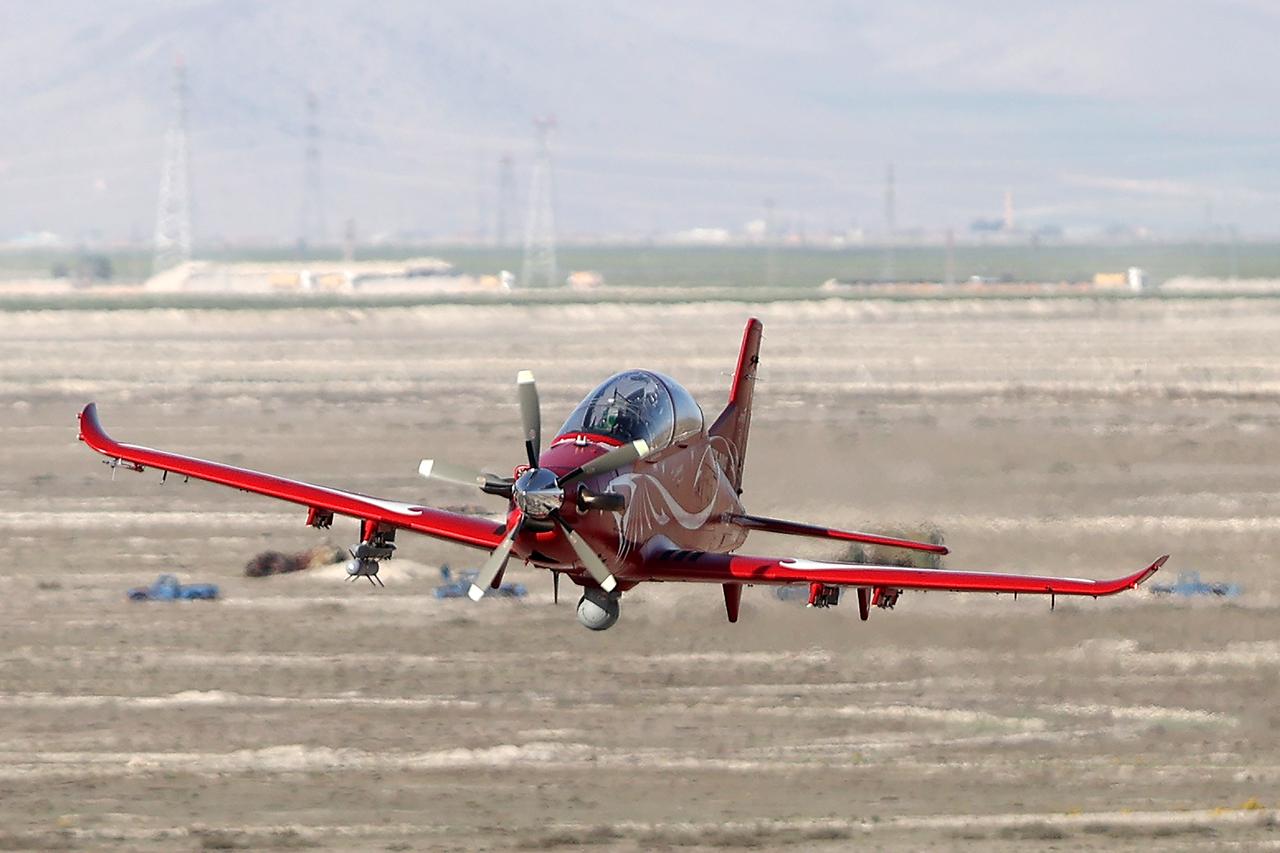
The general manager confirmed specific delivery schedules for the Hurjet advanced trainer aircraft program.
"Our first delivery to the Turkish Air Force will be at the beginning of 2027. For Spain, 2028 is currently targeted," Demiroglu stated.
TAI received 16 aircraft orders from the Air Force Command for Hurjet and signed an agreement with Spanish firms led by Airbus last week. The company aims to sign contracts totaling over 100 aircraft this year with both the Spanish and Turkish air forces.
"We hope that Spain's door will open NATO's door for us. We are trying to do our best to make this NATO's training aircraft," Demiroglu said.
Drawing attention to Hurjet being selected by Spain to meet their own training aircraft needs, Demiroglu made the following assessment:
"We implement projects under the coordination of our Defense Industries Presidency (SSB), the Turkish Armed Forces (TAF) determines the needs, and we advance projects under SSB leadership. Regarding Hurjet, we continue working on what will be done domestically, which companies will do what, and which system."
"Allah willing, within this year, we aim to sign contracts with both Spain and our own air forces, reaching a total number of over 100. We hope that Spain's door will open NATO's door for us. We are trying to do our best to make this NATO's training aircraft."
Recently a pivotal agreement that could pave the way for Türkiye's first national jet trainer and light attack aircraft to enter NATO and global markets was signed in Spain between TAI and Airbus, and the Spanish Ministry of Defense marking a significant milestone for Turkish aerospace ambitions.
Speaking at the 4th International Defense and Security Fair (FEINDEF) in Madrid, TAI General Manager Mehmet Demiroglu described the agreement as "forming an important milestone in the steps we planned to take in the Hurjet project."
Demiroglu also noted that with this agreement, the companies will accelerate their technical work. "Until now, we did the installation for Hurjet in Türkiye, but now we will do it in Spain. This is a very important agreement with high potential for us. Because once we succeed at this point, many other doors will open—not just for NATO," he said.
Describing Hurjet as "a platform we have great confidence in and are hopeful about," the Demiroglu added, "It's an advanced training jet and really fills a serious gap. It's an ideal training aircraft for both the Turkish Air Force and NATO, and it will have different configurations. We think Hurjet is a very nice and useful product not only for NATO countries but also for other countries, and it's a very ideal aircraft for both training and light attack missions."
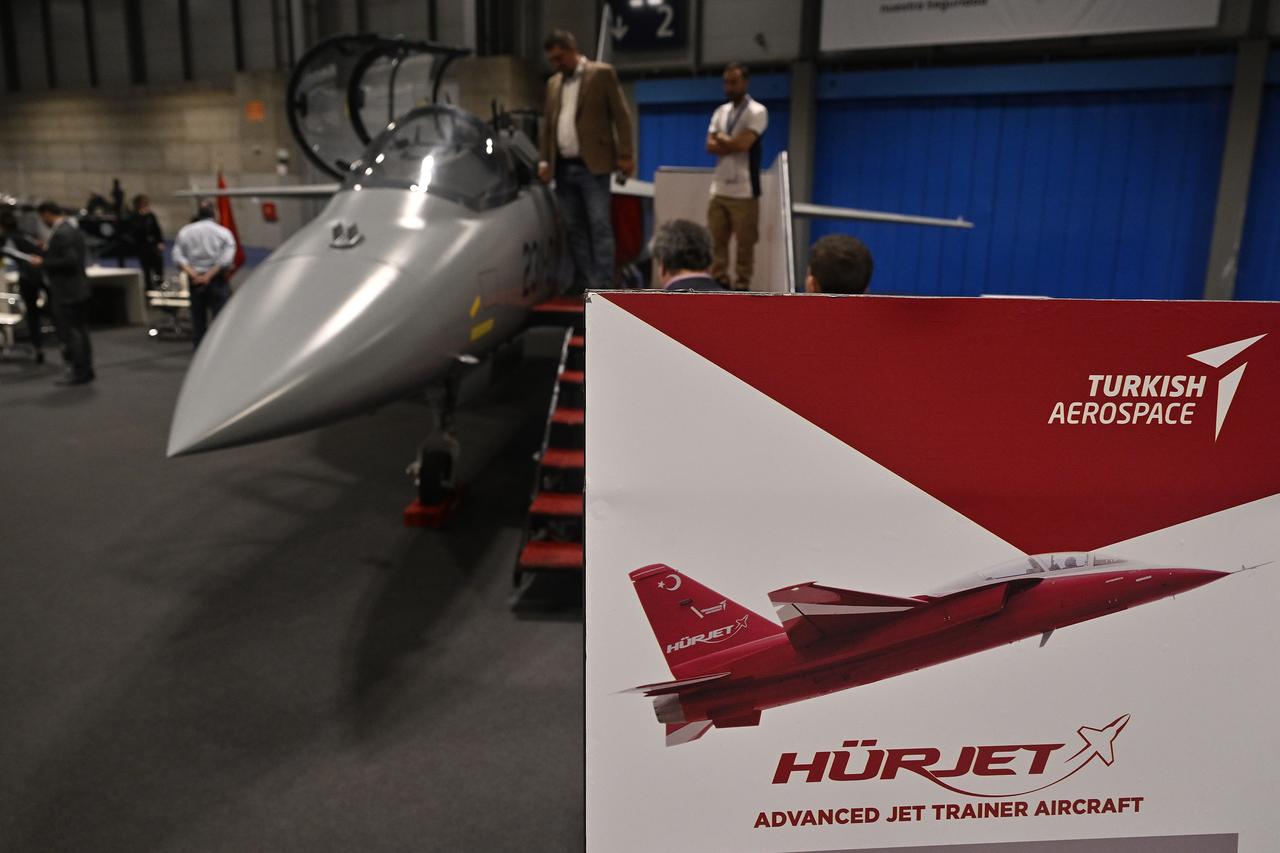
Demiroglu highlighted a significant technological achievement with the company's indigenous PD170 engine produced by TEI.
"We reached 40,000 feet with our indigenous engine PD170 produced by our TEI. A diesel engine reaching 40,000 feet is a very important success," he said.
Explaining that the unmanned aerial vehicle AKSUNGUR has almost the same platform as Anka but with greater payload capacity and can stay airborne for 52 hours, Demiroglu said: "It can go and return approximately 3,000 kilometers. This is a very serious strategic product, it is in great demand. Our number here is currently 17, but it will increase. "
"The good news is that we reached 40,000 feet with our indigenous engine PD170 produced by our TEI. A diesel engine reaching 40,000 feet is a very important success. Such a platform reaching 40,000 feet with a diesel engine is another success."
The Aksungur unmanned aerial vehicle, powered by this engine, can stay airborne for 52 hours and travel approximately 3,000 kilometers, making it a strategic platform with high demand.
The national combat aircraft KAAN continues development with two prototypes currently in production.
"At the end of 2025, beginning of 2026, our second prototype, and a few months later our third prototype, will hopefully take to the skies. So within 2025, we plan to fly at least two KAANs together, and three KAANs in our plan," Demiroglu explained.
Stating that production of two aircraft continues in the national combat aircraft KAAN project, Demiroglu provided the following information:
"At the end of 2025, beginning of 2026, our second prototype, and a few months later our third prototype, will hopefully take to the skies. So within 2025, we plan to fly at least two KAANs together, and three KAANs in our plan. After these tests, we will make three more, and as we promised, by the end of 2028, beginning of 2029, we plan to deliver our KAAN in blocks to the Turkish Air Force."
International interest in KAAN remains strong, with Saudi Arabia showing sustained high-level interest and positive developments in Indonesia.
"Saudi Arabia has been interested for a long time, their interest is at the highest level right now. The Indonesian side is also going well," he noted.
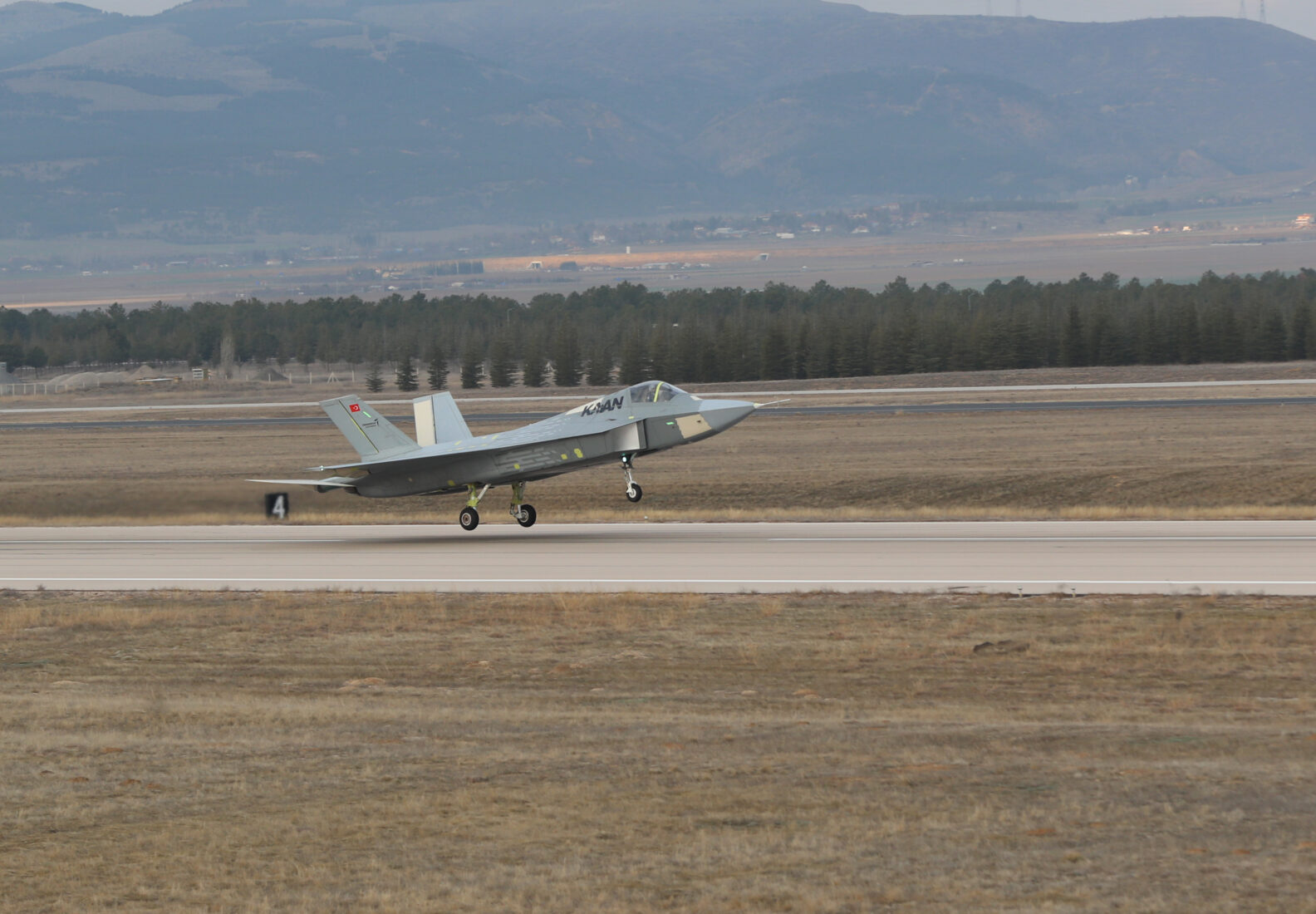
Emphasizing that they achieved many firsts with Anka-3 UAV prototypes, Demiroglu said, "We fired from closed and internal weapon and ammunition bays.
This is something done for the first time in Türkiye. Our work continues with two prototypes will hopefully move to the serial production phase next year. Both our Air Forces and other forces are waiting for this aircraft. Allah willing, we will be expecting good news from the upcoming Executive Committee."
Regarding Anka 3's entry into inventory, Demiroglu said: "There is no clear schedule right now, but we target the first delivery at the end of 2026 or the beginning of 2027. When we say first delivery, it becomes the first delivery, but whether we will deliver 5 or 10 after that depends entirely on the agreement we will make with the user, but I can say that as of 2027, we will be able to see these aircraft in the inventory."
Demiroglu said, "Every aircraft you see when you look at the sky has a TAI signature. As TAI, we carry out work with the world's largest aircraft manufacturers such as Boeing, Airbus, Spirit Aerosystems, we produce parts in over 400 high-tech production benches."
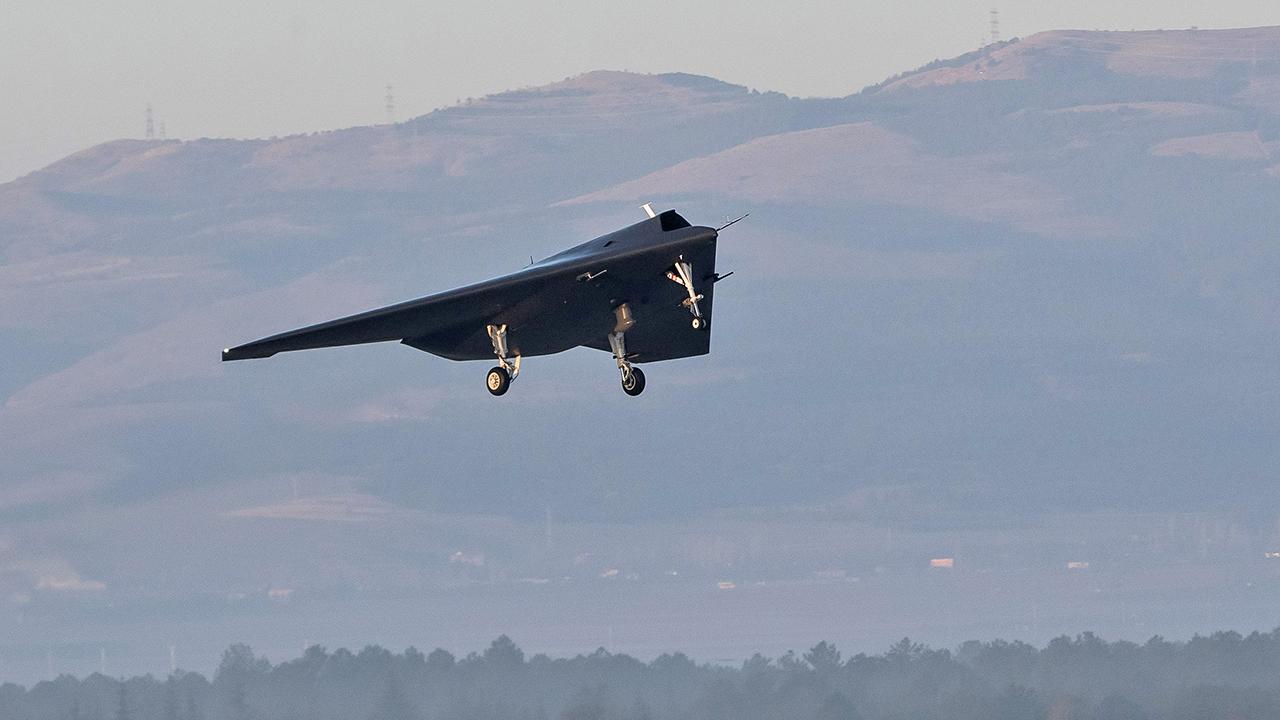
TAI reported significant financial growth projections alongside production expansion. Demiroglu stated that 2024 revenue approached $3 billion, with a target of $4.3 billion for the current year. The company aims to achieve $12 billion in revenue by 2034.
The company currently employs nearly 16,000 people, with over 10,000 personnel joining in the last decade.
"When we look at what we have ahead until 2034, there are approximately 500 KAAN, Hurjet, and Hurkus production. We see production of over 350 Gokbey, Atak, Atak-2, and similar platforms. We see nearly 600 Anka-3, Atak, Anka-1, Aksungur and similar platforms. We calculate nearly 20 large and small satellites. This means serial production far beyond what we have done so far. Additionally, we target $12 billion in revenue in 2034."
When asked about developments in indigenous engines, Demiroglu answered: "The Gokbey helicopter engine has advanced quite a bit. We will start using it within one or two years."
"KAAN's engine continues. After that, the 3,000 horsepower engine will come. We will buy from Ukraine for a certain period. Then we will produce for ourselves because we are talking about a total of 600 engines. If we buy 100 from Ukraine, 500 still need us."
Regarding the effects of lifting sanctions on the defense industry and engine procurement, Demiroglu answered, "We have our absolute necessities. We have to make KAAN. We also have to make KAAN's engine. The same applies to Hurjet. When you cannot get the system in the project, you have to do this."
Touching on developments regarding Hurjet's engine, Demiroglu said, "We expect good news about Hurjet's engine any day now."
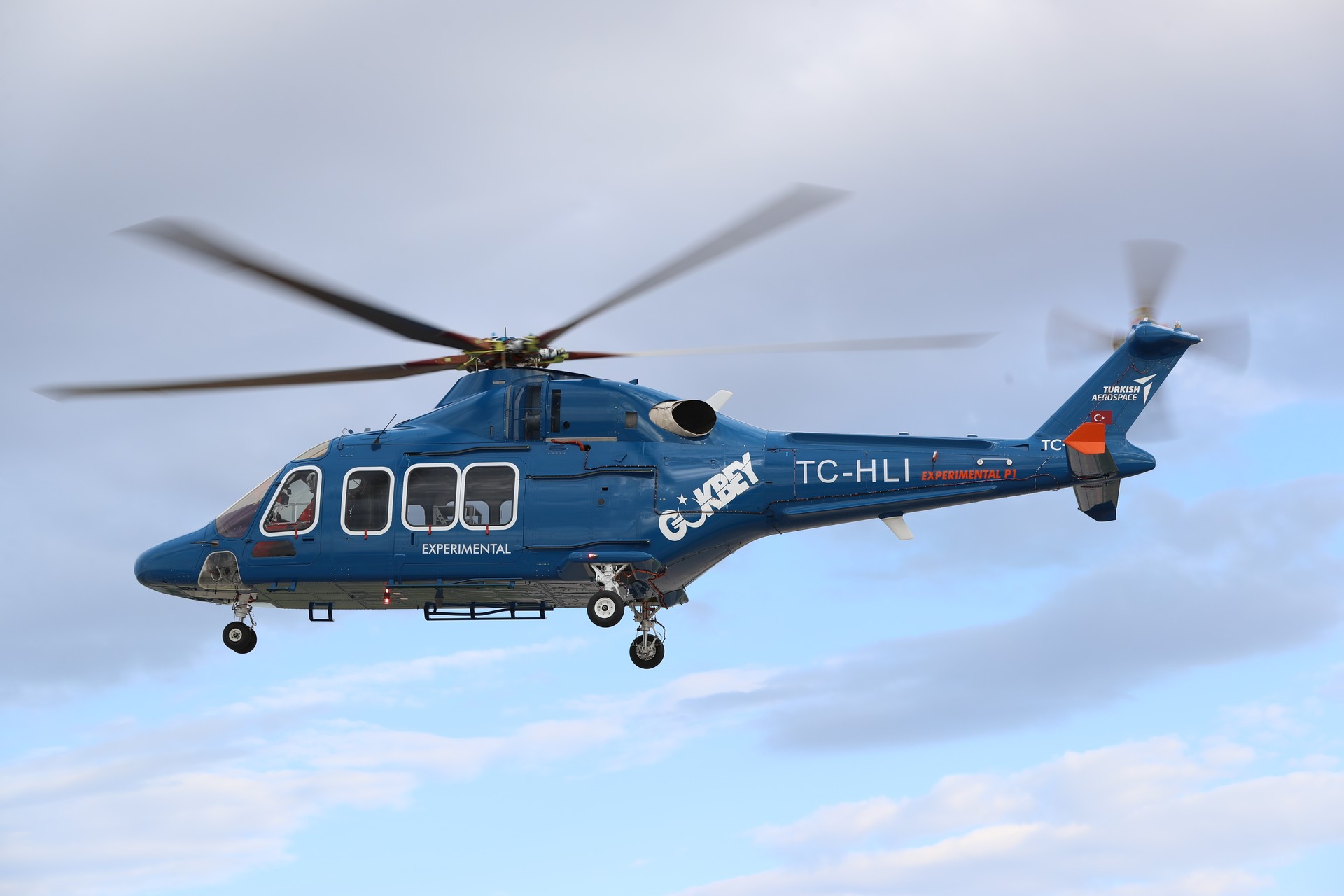
TAI operates as both a national and global company with offices across multiple continents.
Demiroglu recorded: "TAI is a national and global company. It has offices in America, Asia, Europe, and Africa. There are two branches in America, offices in Germany, France, Spain in Europe, and TAI offices in Azerbaijan, Kazakhstan, Pakistan, Malaysia, and lastly, Indonesia in Asia. In line with our President Recep Tayyip Erdogan's indigenous and national defense industry vision, 125 of the localization activities adopted as missions have been implemented, and over 330 localization projects continue. With these nationalization projects, $1 billion will remain in our country annually."
Expanding into new markets, the company is growing in the African market and has begun opening offices in Algeria, Saudi Arabia, Nigeria, and Brazil.
"TAI is a national and global company. It has offices in America, Asia, Europe, and Africa," Demiroglu said, adding, "Under President Recep Tayyip Erdogan's indigenous and national defense industry vision, 125 localization activities have been implemented, with over 330 localization projects ongoing. These nationalization projects will keep $1 billion annually within the country."
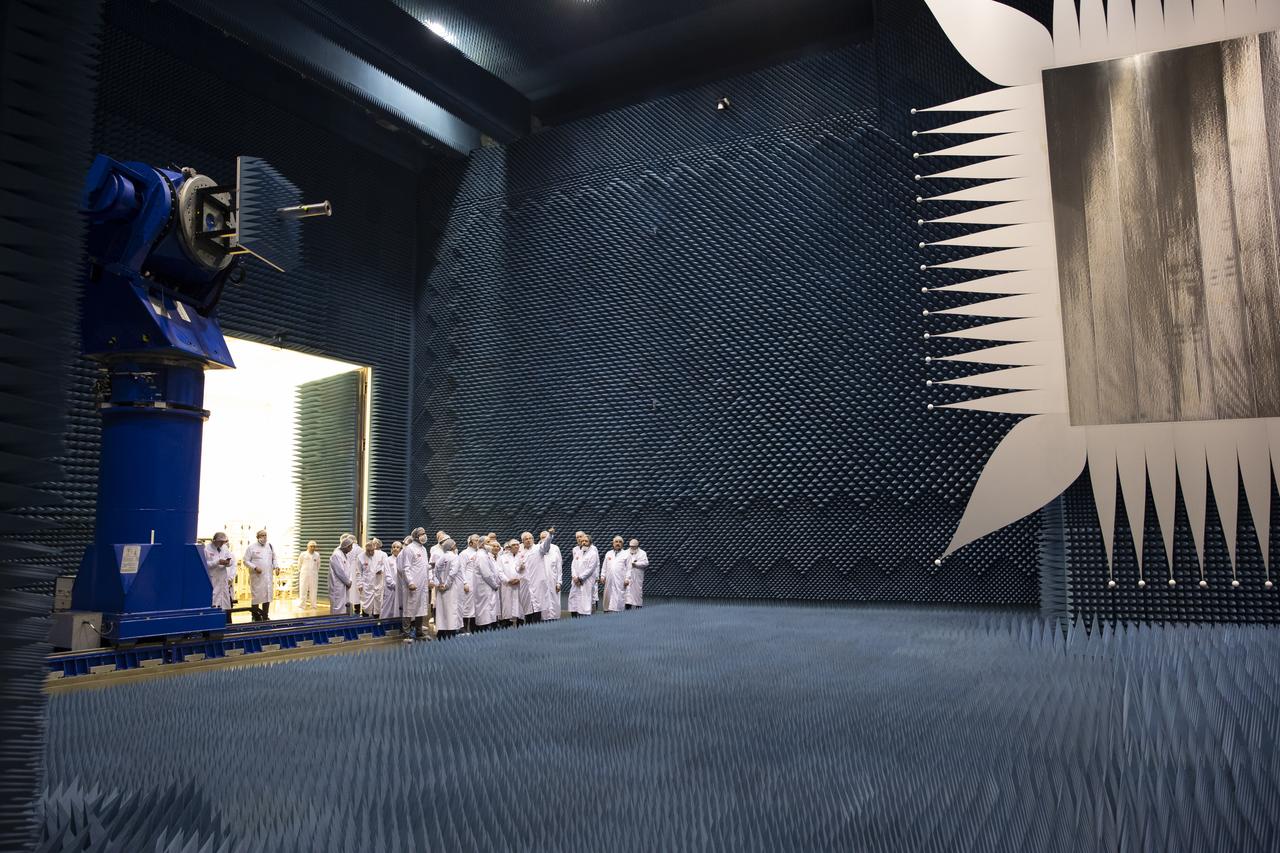
The company plans significant expansion in the service, logistics, and spare parts sectors.
"We have a goal to expand TAI's service, logistics, and spare parts section. That's where we will grow the fastest. Maybe in five years, that will be where we make the biggest revenue," Demiroglu explained.
TAI currently services 83 Anka unmanned aerial vehicles and 92 Atak helicopters in user inventories, demonstrating the company's operational support capabilities.
The briefing included detailed tours of production facilities for KAAN, Aksungur Anka, Hurjet, Hurkus, Gokbey Helicopter, Atak Helicopter, Wind Tunnel, and USET (Space Research-Satellite Systems) production lines.